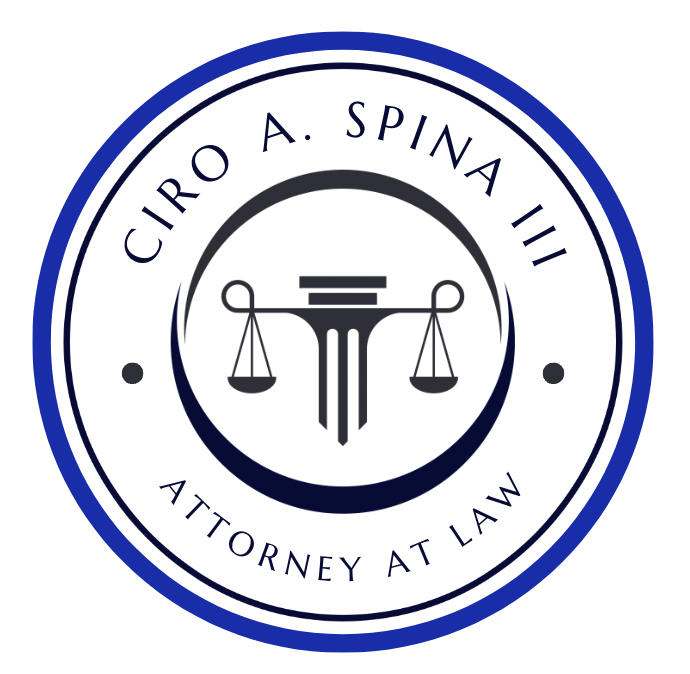Divorce is never easy—emotionally or financially. In New Jersey, one of the most stressful aspects of the divorce process is dividing up assets and debts. Questions like “Who gets the house?”, “What happens to my retirement accounts?”, and “Will I be responsible for my ex’s credit card debt?” are common—and important.
At Ciro A. Spina III Law, we help individuals navigate the complex world of divorce law with clarity and confidence. If you’re getting divorced in New Jersey, here’s what you need to know about how your house, retirement savings, and debts may be handled.
Understanding Equitable Distribution in New Jersey
New Jersey is an equitable distribution state. This means marital property is divided fairly—but not necessarily equally—between spouses during a divorce. The court considers several factors, such as:
-
The duration of the marriage
-
Each spouse’s income and earning potential
-
Contributions to the marriage (financial and non-financial)
-
The standard of living established during the marriage
-
Custody of children (especially when the family home is involved)
Keep in mind that equitable doesn’t always mean a 50/50 split. Instead, the court looks at what’s fair based on the unique circumstances of each case.
What Happens to the Marital Home?
The family home often represents more than just financial value—it holds emotional significance, especially when children are involved. In New Jersey, whether the house is divided or awarded to one spouse depends on several factors:
1. Is the House Marital Property?
If the home was purchased during the marriage using joint funds, it’s considered marital property. If one spouse bought it before the marriage but the couple lived there together and used joint funds to pay the mortgage or make improvements, the other spouse may still have a claim to a portion of its value.
2. Who Gets to Keep the House?
There are a few possible outcomes:
-
One spouse keeps the house and buys out the other’s share.
-
The home is sold, and the proceeds are split.
-
The spouse with primary custody of the children stays in the home for a period of time, with plans to sell it later.
Whether you want to stay in the house or sell it and move on, Ciro A. Spina III Law can help you understand your options and protect your interests.
 Dividing Retirement Accounts and Pensions
Dividing Retirement Accounts and Pensions
Your 401(k), IRA, pension, or other retirement savings are also subject to equitable distribution in New Jersey. Many people are surprised to learn that even if only one spouse’s name is on the account, the other spouse may still be entitled to a portion.
1. Marital vs. Separate Retirement Assets
Only the portion of retirement funds accumulated during the marriage is considered marital property. Contributions made before the marriage are generally considered separate and not subject to division.
2. How Retirement Assets Are Divided
Dividing retirement accounts isn’t as simple as writing a check. Most require a Qualified Domestic Relations Order (QDRO) to divide the account without tax penalties. A QDRO is a legal order that tells a retirement plan administrator how to distribute the funds to each spouse.
At Ciro A. Spina III Law, we work with financial experts and plan administrators to ensure these complex assets are divided correctly and that you don’t face unexpected tax consequences.
What About Debts?
Debt division can be just as critical—and contentious—as dividing assets. In New Jersey, marital debt is treated similarly to marital property: it is divided equitably.
1. Types of Debt That May Be Divided
-
Credit card debt
-
Personal loans
-
Mortgages
-
Auto loans
-
Medical bills
The key question is whether the debt was incurred during the marriage. If so, it’s likely to be considered a joint responsibility—even if the debt is only in one spouse’s name.
2. Who Pays What?
Just like with assets, the court will look at several factors, including who incurred the debt, each spouse’s ability to pay, and the purpose of the debt.
It’s also important to note that creditors aren’t bound by your divorce decree. Even if your spouse is ordered to pay a joint debt, the creditor can still come after you if your name is on the account. That’s why it’s critical to work with an attorney to ensure these obligations are handled strategically.
Protecting Yourself During Divorce
No two divorces are alike, and the division of property and debt can quickly become complicated. Here are a few tips to protect yourself:
-
Gather Documentation: Collect statements, deeds, mortgage records, loan agreements, and retirement account information as early as possible.
-
Avoid Large Purchases: Don’t make big financial decisions during your divorce without speaking to your attorney.
-
Consider Mediation: Mediation can sometimes lead to a more amicable and cost-effective settlement than going to court.
-
Work with an Experienced Attorney: Having a knowledgeable divorce attorney on your side ensures that your rights are protected every step of the way.
Why Choose Ciro A. Spina III Law?
At Ciro A. Spina III Law, we understand the legal, financial, and emotional weight of divorce. Our team is committed to helping New Jersey residents through the asset division process with professionalism, compassion, and attention to detail.
Whether you’re concerned about keeping your home, protecting your retirement, or avoiding responsibility for a spouse’s debt, we’re here to advocate for you.
Our office provides personalized guidance every step of the way—from negotiation to courtroom representation—so you can move forward with confidence.
Ready to Talk?
If you’re facing divorce in New Jersey and need help understanding what happens to your house, retirement, and debts, contact Ciro A. Spina III Law today. We will provide the guidance you need to move forward with peace of mind.
📞 Call: (973) 661-1110
🌐 Visit: spina-law.com
📍 Location: Nutley, NJ
Other Posts:
How to Negotiate a Divorce Settlement Without Going to Court

